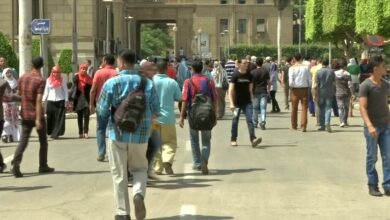CEO ETISAL International reveals to the Ta3heed newsletter the mechanisms for advancing the industry

Egypt seeks to double digital exports, especially those resulting from outsourcing services. Supporting the outsourcing industry is a national trend, given that it is a labor-intensive industry.
Dr. Mohamed Eissa, Group CEO ETISAL International Group, said that outsourcing companies that provide their services from Egypt, whether international or local, have a strong opportunity to rapidly increase exports.
During his interview with the Ta3heed newsletter, he believes that artificial intelligence is one of the tools available to achieve strong growth in companies’ expansion of the services they provide, as well as in the volume of outsourcing exports.
How can the outsourcing industry support digital exports in Egypt?
The outsourcing industry is one of the most promising industries in Egypt, and Egypt has competitive advantages in this industry.
There are a number of ways to increase our digital exports based on the outsourcing industry.
Perhaps the use of artificial intelligence is one of the mechanisms available to increase digital exports and increase the share of outsourcing activity in these exports.
How can artificial intelligence support increasing the outsourcing industry’s share of digital exports?
Artificial intelligence can be employed and used in multiple industries, and the outsourcing industry is perhaps one of these industries.
First, let us agree that to increase exports for the outsourcing industry, companies must expand to provide their services in different languages, even rare ones, and this faces the challenge of limited resources.
If this is implemented in the traditional way, which is for companies to invest in human cadres to train and teach them to provide services in specific languages, or to appoint employees who speak these languages, it will be a huge investment for the companies due to their need to expand their offices and it takes a long time, in addition to facing challenges related to providing these human elements in Turnover rates in this industry have continued to increase.
But this can be overcome by using artificial intelligence technology that processes languages.
Using this technology, young graduates can be used to provide their services via “chat” using artificial intelligence, which processes the language in real time. In this case, it can support and provide services to German-speaking clients by an Egyptian young man who speaks Arabic.
This mechanism helps companies increase their financial resources through horizontal expansion in the languages in which they provide services, supports them in hiring more young people faster and also accelerates the pace of increasing exports.
But this means that the use of this technology will be limited to services that can be provided via chat. Is this true?
At the current stage, there are no techniques based on artificial intelligence that process spoken languages in real time, but with the rapid development of technology, we will find solutions that can process languages in real time.
Therefore, this technology can be employed in services that can be provided via chat only, or that do not require that the customer be spoken to via voice.
But even if at the current stage the processing of written languages is limited only based on artificial intelligence, this provides more flexible solutions for companies, and provides them with more rapid tools to increase the languages in which they provide their services as well as their financial resources.
Through simple steps based on artificial intelligence, companies will have unlimited resources.
Another advantage of localizing artificial intelligence in the outsourcing industry is the availability of rare languages to companies with unlimited resources.
How will this impact exports?
If companies work to use artificial intelligence technologies in providing their services, this will cause a significant boom in the volume of outsourcing industry exports.
In terms of realistic implementation…is it possible to easily use artificial intelligence techniques?
Indeed, there are companies that have begun to use artificial intelligence technologies to provide outsourcing services, and the number of companies will increase widely during the coming period.
What about ethical considerations for using data?
As AI increasingly becomes part of BPO services, ethical considerations around data privacy, security and transparency become paramount.
Companies should prioritize building trust with customers by ensuring ethical AI practices and providing clear communication about the use of automation. In addition, customer preferences may affect the balance between AI and human resources, as some customers prefer automated self-service, while others seek For human interaction, BPO providers need to offer customizable solutions that suit individual preferences.





